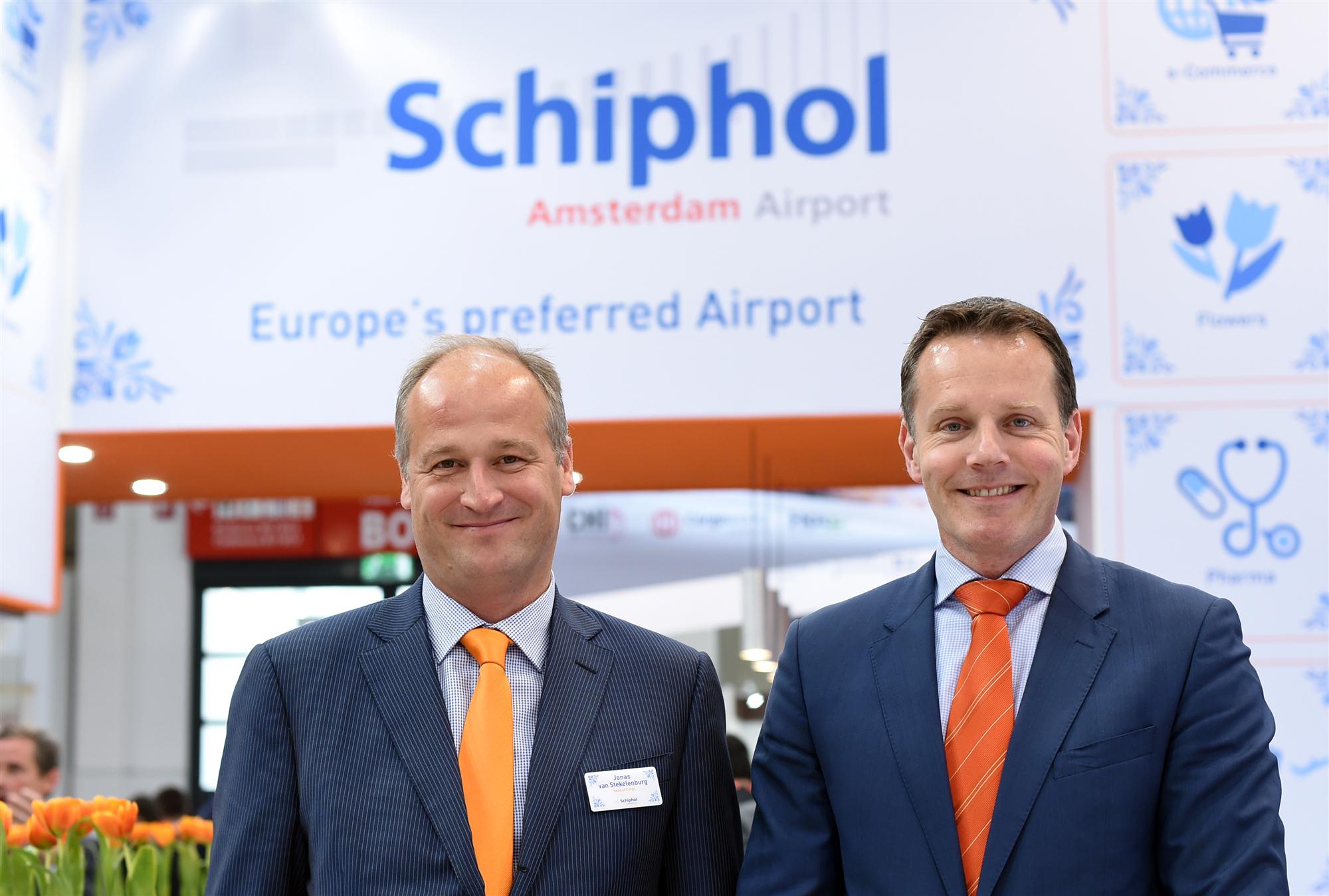Amsterdam Airport Schiphol and Cargonaut have launched their Compliance Checker, an online system which speeds up cargo flows by automatically inspecting the content and format of a shipment’s data for errors.
“The Compliance Checker reduces delays in the supply chain and makes it more predictable and efficient for everyone,” said Jonas van Stekelenburg [left], head of cargo at Amsterdam Airport Schiphol. “It is a generic tool, which benefits the whole supply chain. KLM is the first company to work with the Compliance Checker. However, other parties have already shown an interest in the project and we are actively looking for more partners, including shippers and forwarders, to help us expand this project.”

The system was developed by Cargonaut and tested by KLM Cargo.
“Data is key to helping us get a grip of what is about to happen – it ensures we maintain control of the circumstances, and are able to anticipate, hence becoming proactive instead of reactive,” said Marcel de Nooijer, EVP of Air France KLM Martinair Cargo. “The newly developed Compliance Checker at Schiphol, which verifies all House and Master air waybills to compliance regulations throughout the complete shipment journey, from the moment the data enters our systems, is a perfect example of this. With this tool, we continue to innovate the supply chain and we are able to keep to our promise and deliver the best quality throughout the shipment journey.”
The tool checks data on both shipment and trucking levels and is compliant with customs rules in the EU, the US, as well as other countries. It is generic and compatible with any part of the air cargo supply chain because it allows modifications and new rule sets to be made. Shipments are not transported until all information has been submitted correctly.
“The system recognises different descriptions of a similar product and flags this,” said Nanne Onland [right], executive director of Cargonaut. “The term iron, for example, would provoke an alert, as this term is not compliant with customs rules, whereas the term iron pipes would not cause an alert because it is compliant.”
The first results from the tool have shown that 80% of errors occur in just 20% of shipments, according to Schiphol.



